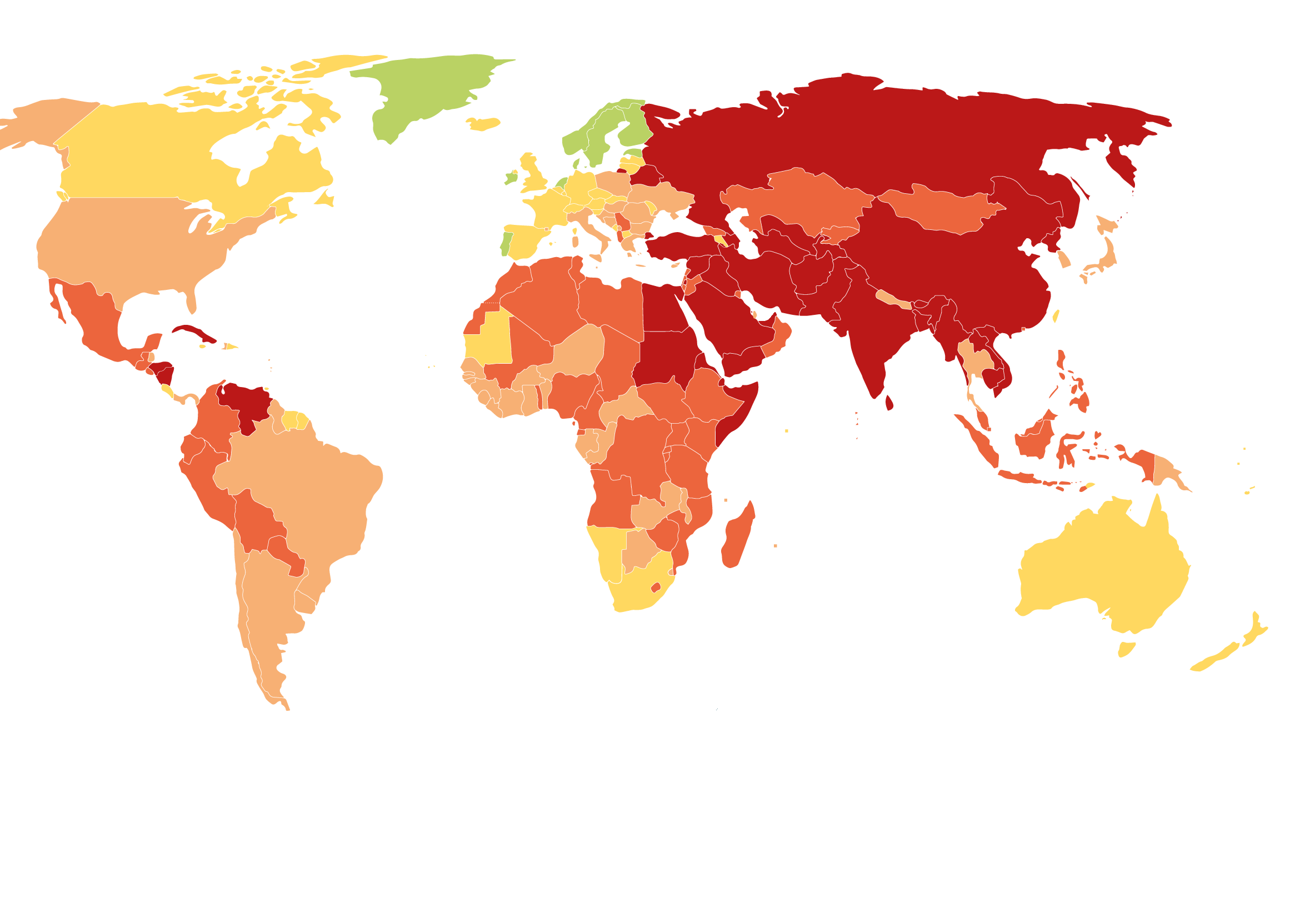India: RSF and national civil society organisations give new government 10 recommendations to guarantee press freedom

Reporters Without Borders (RSF), along with the civil society organisations Network of Women in Media, India (NWMI); Free Speech Collective (FSC); and Internet Freedom Foundation (IFF), call on India’s new government to adopt urgent measures to safeguard the protection of journalists and their freedom to do their work.
India’s new government must act decisively to restore press freedom in a country which is alarmingly at the 159th place out of 180 countries in RSF's 2024 World Press Freedom Index.
RSF, with endorsement from the pan-Indian Network of Women in Media, India (NWMI); Free Speech Collective (FSC), a collective dedicated to protecting freedom of expression; and Internet Freedom Foundation, a digital rights organisation, has made 10 urgent recommendations to protect journalists, guarantee media independence, amend laws that restrict the right to information, and safeguard access to the Internet and digital media.
“The erosion of press freedom in India, which has happened over the past decade, is deeply worrying in a country that has joined 52 other nations in signing up to the Partnership for Information and Democracy. It creates a very negative international image of a country billed as the world's largest democracy. As India’s journalists struggle to work in an environment where press freedom is declining, Indian civil society organisations join RSF in calling on the new government to urgently adopt 10 key measures to guarantee the protection of journalists and safeguard Indians’ right to information.
In 2019, India signed the Partnership for Information and Democracy, a commitment shared with 51 other states worldwide. This initiative, launched by RSF, formalises nations’ commitment to promoting access to free, independent, diverse and reliable information. Among other principles, the text establishes that working journalists must be protected against all forms of violence, threats, discrimination, arbitrary detention and abusive legal proceedings. Sustainable business models must be developed to enable independent, high-quality journalism.
The 10 urgent actions the new government must take:
1) Overhaul anti-terrorism laws so they are not used against journalists
The Unlawful Activities Prevention Amendment Act, 2019 (UAPA) and the Public Safety Act, 1978 must not be used as tools to repress media personnel. Additionally, the state must desist from misusing the criminal laws against journalists.
2) Overhaul laws that are misused to control and censor the media
Multiple 2023 regulations must urgently be revised: the Telecom Bill, the Digital Personal Data Protection Act, the Press and Registration of Periodicals Act, the Broadcasting Bill, and the Information Technology Amendment Rules, which provide for the creation of a Fact Checking Unit at the sole discretion of the government.
3) Establish an independent commission to investigate cases of spyware targeting journalists
At least 15 Indian journalists were targeted by Pegasus spyware between 2021 and 2023.
4) Protect the confidentiality of journalists’ sources
The seizure of journalistic equipment must be limited to strictly defined, exceptional circumstances that are controlled by an independent judicial authority. This is essential in order to safeguard the confidentiality of journalists' sources, which are currently not protected.
5) Safeguard pluralism by regulating media concentration
A small number of private-sector companies and conglomerates currently own many of India’s media outlets. Legislation must be introduced to end these monopolies and restrict cross-ownership in order to safeguard media diversity.
6) Adopt protocols to protect journalists
Measures for a quick response to guarantee the physical and digital safety of journalists, especially those under threat and intimidation, are urgently needed. Measures must also be taken to protect journalists, notably women and those from marginalised communities, against cyber-harassment to end impunity for these attacks and enable reporters to continue their work.
7) Put a stop to arbitrary Internet shutdowns
India led the world in arbitrary cuts to Internet access for the sixth year running in 2023. These shutdowns, which are carried out in an arbitrary manner, violate international law, obstruct journalists’ work and encourage the spread of mis- and disinformation.
8) Guarantee the foreign media’s ability to cover India
Foreign journalists who were based in India have been refused visas and work permits since 2019. Deprived of the right to work, several of them had to leave the country.
9) Hold press conferences
The prime minister and other decision makers within the government must hold regular press conferences accessible to all media.
10 ) Protect the rights of all journalists
Journalists – both employees and freelancers – are increasingly vulnerable due to both job insecurity and the non-recognition of their right to work. Their access to important public events is restricted by laws around accreditation, and the legitimacy of freelancers and journalists on digital media platforms has yet to be recognised. The newly elected government must strengthen the legal protections surrounding reporters’ right to work.




